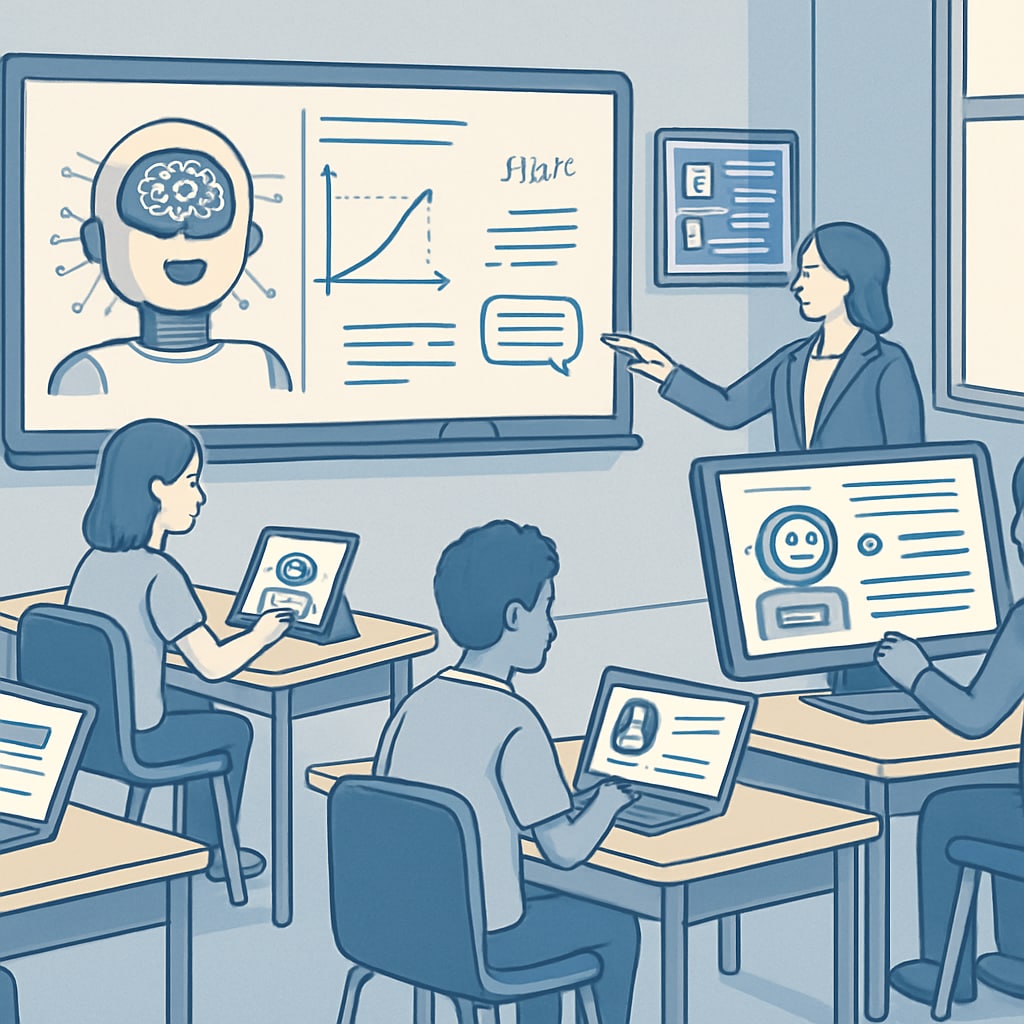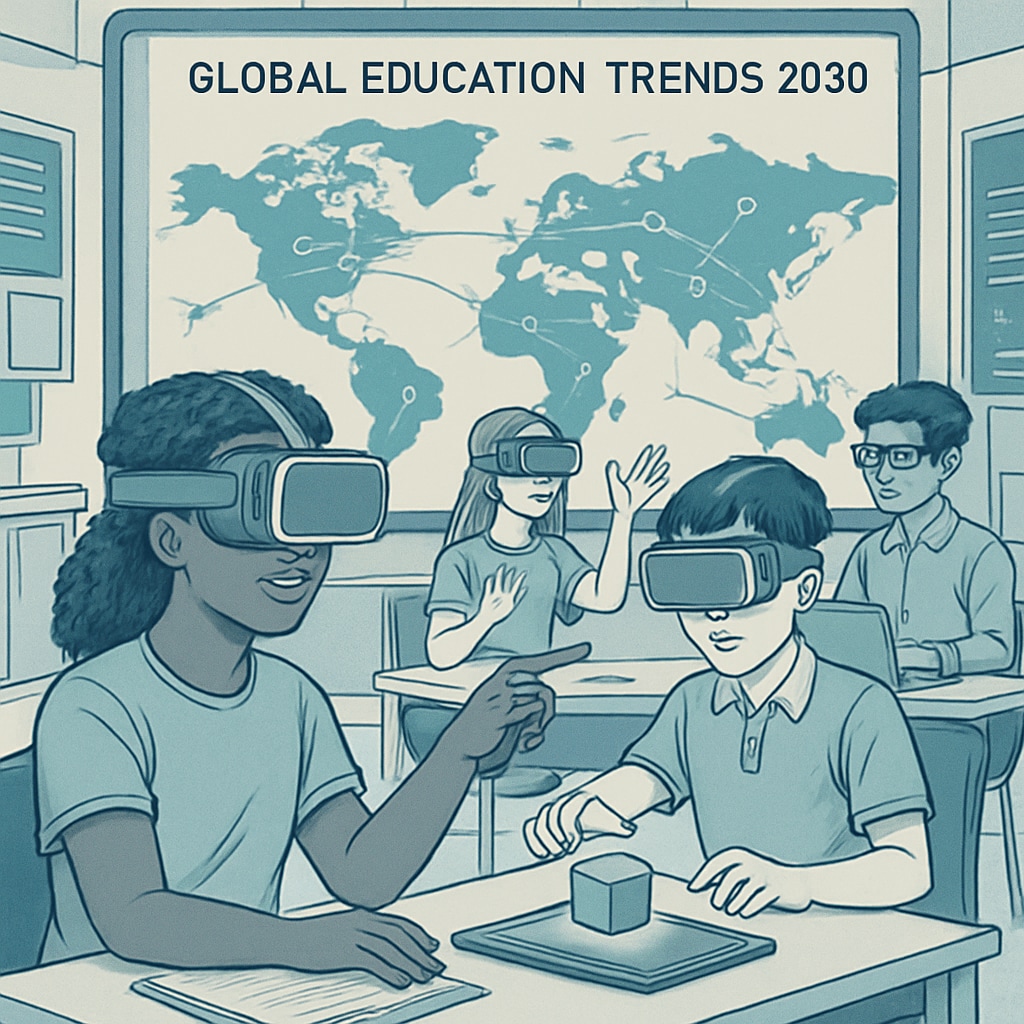Artificial intelligence education, education trends, and the future of classrooms in 2030 are set to be revolutionized by the convergence of cutting-edge technology and the ever-expanding reach of globalization. These forces are reshaping how knowledge is imparted and consumed across the globe, bringing about profound changes that will define the next generation of learners and educators. From personalized learning powered by AI to cross-cultural collaborations enabled by global connectivity, the future of education promises to be more dynamic and inclusive than ever.
How Artificial Intelligence is Transforming Education
Artificial intelligence (AI) is poised to become a cornerstone of the educational experience by 2030. Through adaptive learning technologies, AI has the ability to tailor lessons to individual students based on their unique needs, pace, and preferences. For example, AI-driven platforms like intelligent tutoring systems can analyze student performance data to provide customized feedback and recommendations. This not only enhances learning outcomes but also fosters a more engaging and efficient classroom environment.
Moreover, AI-powered tools such as automated grading systems and virtual teaching assistants are reducing administrative burdens for educators, allowing them to focus on creative and meaningful interactions with their students. As a result, the traditional role of teachers is evolving from knowledge transmitters to facilitators of critical thinking and problem-solving.
For further insights into AI’s impact, visit Artificial Intelligence in Education on Wikipedia.

Globalization’s Role in Shaping Future Classrooms
Globalization is equally transformative in redefining the education landscape. By 2030, classrooms will increasingly transcend geographical boundaries, creating opportunities for students to collaborate with peers from diverse cultural backgrounds. Virtual exchange programs, online international courses, and multilingual learning platforms are fostering global citizenship and cross-cultural understanding among learners.
In addition, globalization is streamlining the sharing of educational resources across nations. Open educational resources (OERs), accessible through global networks, are democratizing education by providing high-quality materials to underserved communities. As a result, students from remote or economically disadvantaged regions can access world-class learning content, leveling the playing field for all.
Learn more about globalization and its educational impact at Globalization on Britannica.

A Vision for the 2030 Classroom
In the classroom of 2030, technology and global connectivity will merge to create an immersive, inclusive, and interdisciplinary learning experience. Key features of this vision include:
- Augmented Reality (AR) and Virtual Reality (VR): These technologies will bring lessons to life, allowing students to explore historical events, scientific phenomena, and distant cultures in a highly interactive way.
- AI-Powered Personalization: Learning paths will be customized for each student, ensuring that education aligns with individual strengths and goals.
- Global Collaboration: Students will work on projects with peers from different countries, gaining insights into diverse perspectives and solutions.
As a result of these advancements, education will not only prepare students for the workforce but also equip them with the skills needed to thrive in a globally interconnected and technologically driven world.
Challenges and Ethical Considerations
While the benefits of AI and globalization in education are undeniable, they also raise important challenges and ethical concerns. Issues such as data privacy, equity in technology access, and the potential loss of human touch in teaching must be carefully addressed. Policymakers, educators, and technologists must collaborate to ensure that these innovations serve the best interests of all learners.
In addition, striking a balance between technological reliance and traditional pedagogical methods will be crucial in preserving the core values of education.
Conclusion: By 2030, artificial intelligence and globalization will redefine the education sector in transformative ways, creating classrooms that are more inclusive, personalized, and globally connected. However, realizing this vision will require thoughtful planning and a shared commitment to ethical and equitable practices. As we move forward, the partnership between technology and humanity will shape the future of education for generations to come.


